CauKazEthnoexp. VI. Georgia. Gori, Kutaisi, BatumiMap
July Good roads don’t quite span the entire country so far, but the achievements that do exist create a pleasant impression. 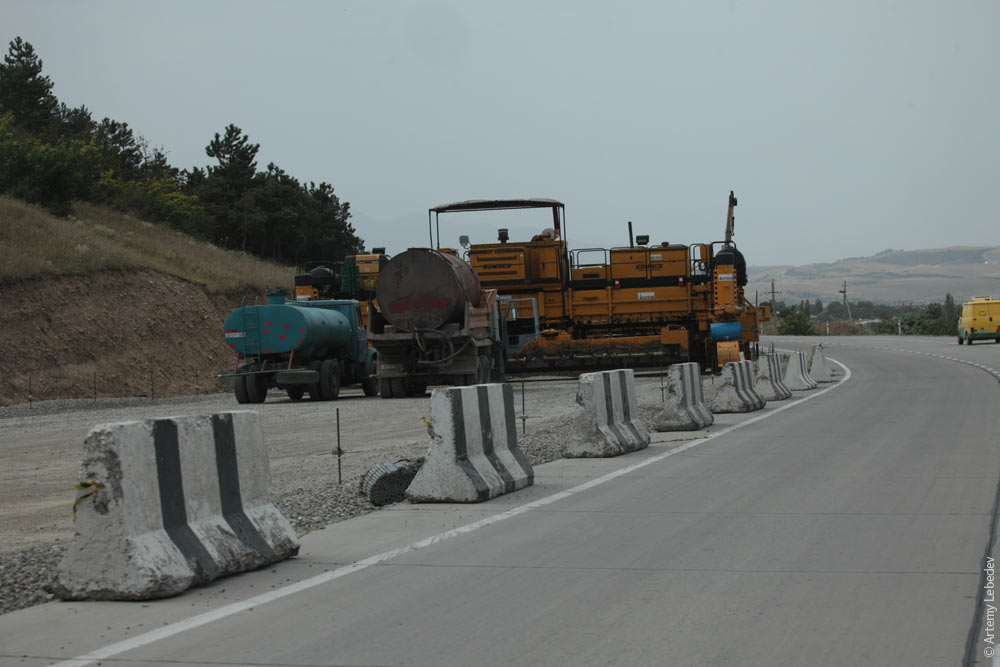 The railways also used to be in poor shape. 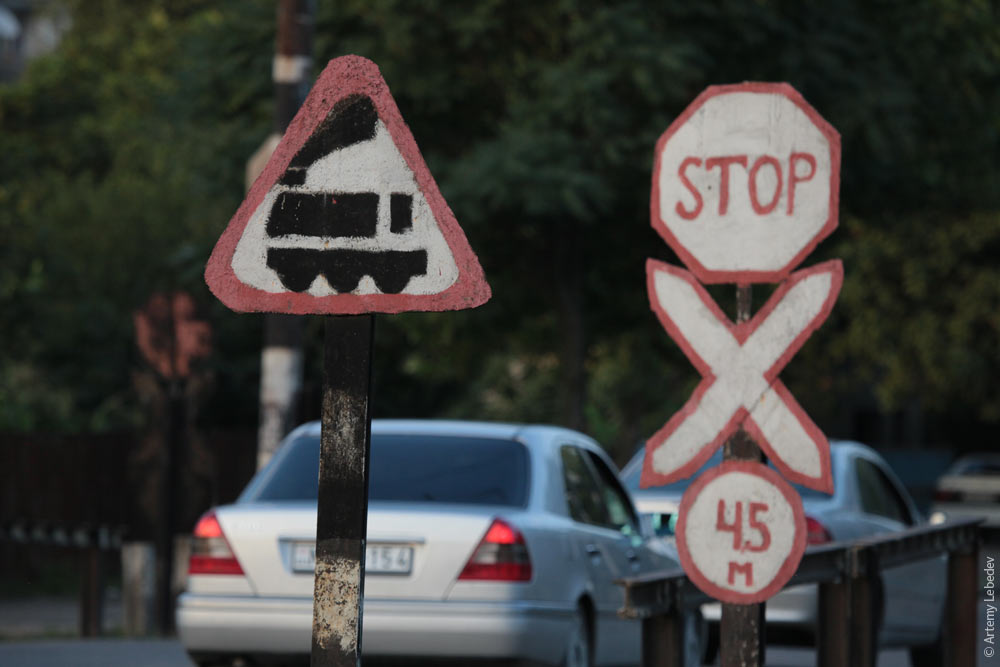 But now there’s a fairly cute white two-car train in operation—it’s shown in the TV ad about the new Georgia. 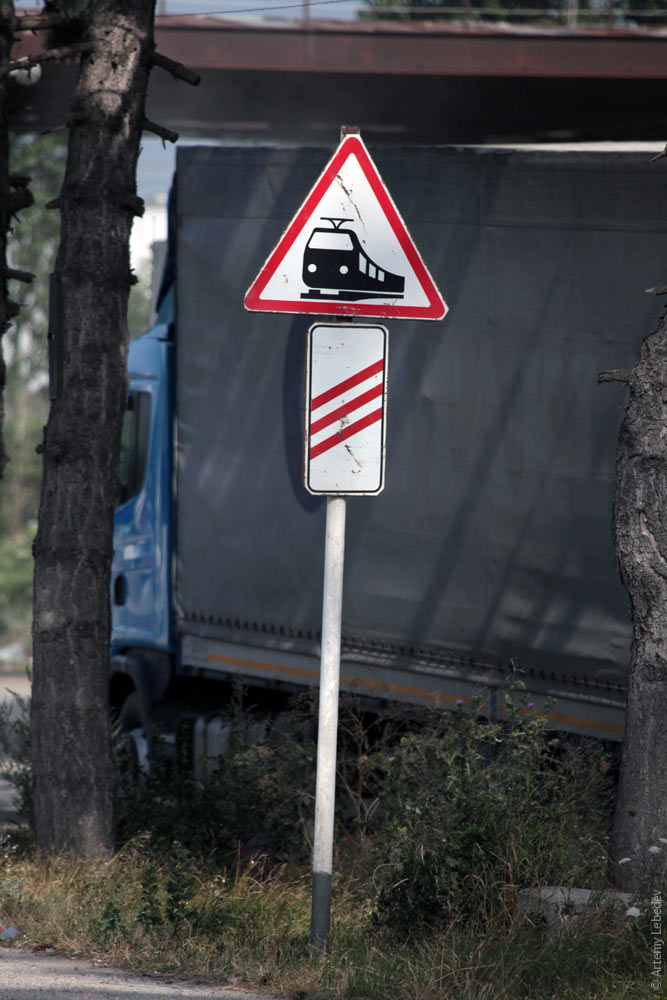 The pride and joy of Georgia—a running train. 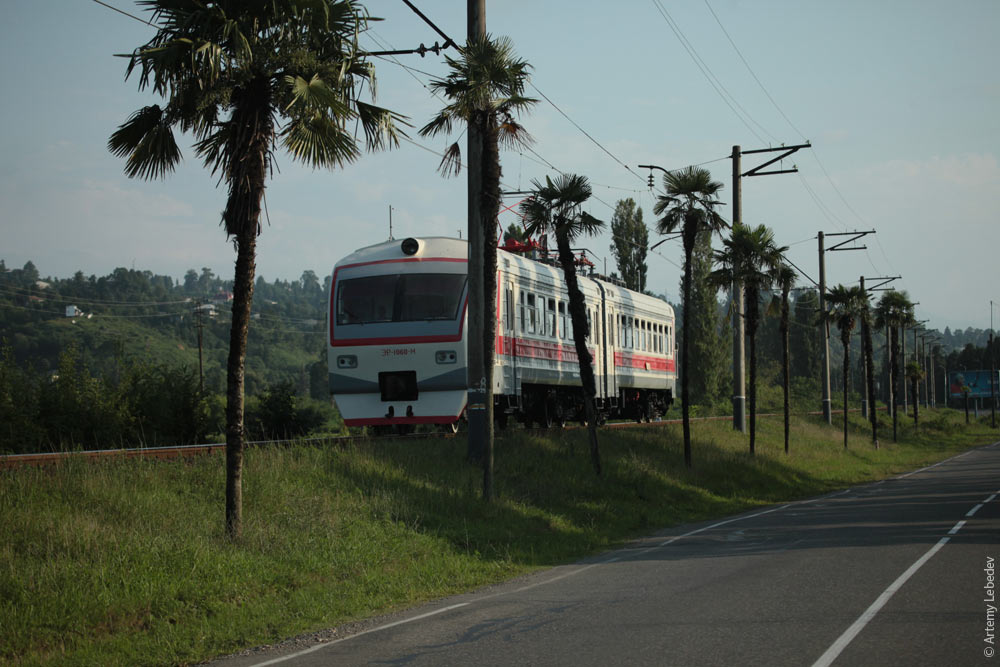 The changes are most noticeable when you look at the police. Instead of the classic mustache-sporting crooks driving Volgas, who stop only to collect bribes, there are actual police patrols on Georgian roads. What’s more, they always have their beacons turned on because they’re not afraid of being spotted from two kilometers away. And they’re not afraid because they’re no longer pursuing the goal of pulling over expensive-looking cars in order to rake in some money. They travel on official business and pull cars over only for violations. After three days, I completely stopped being nervous at the sight of a police car. And I wasn’t pulled over once (we were pulled over the most times in Kazakhstan, the most obnoxious cops were in Azerbaijan, and the largest extortion sums were in Russia; they did pull us over in Armenia, but were afraid of a vehicle with the Channel One logo emblazoned on it). 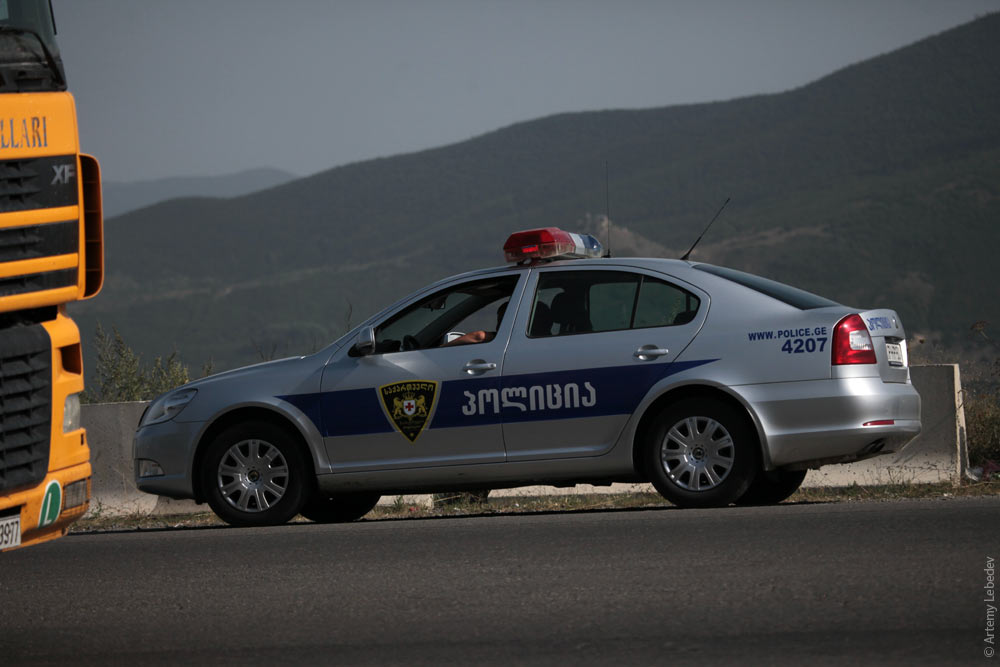 Highway patrol posts have transformed into roadside centers with glass facades, staffed by duty officers. There’s no one standing out front with a baton, no “30 km/h” signs as you approach. All the locals claim that the police no longer take any bribes. I didn’t get a chance to verify this because not a single cop so much as looked in my direction. 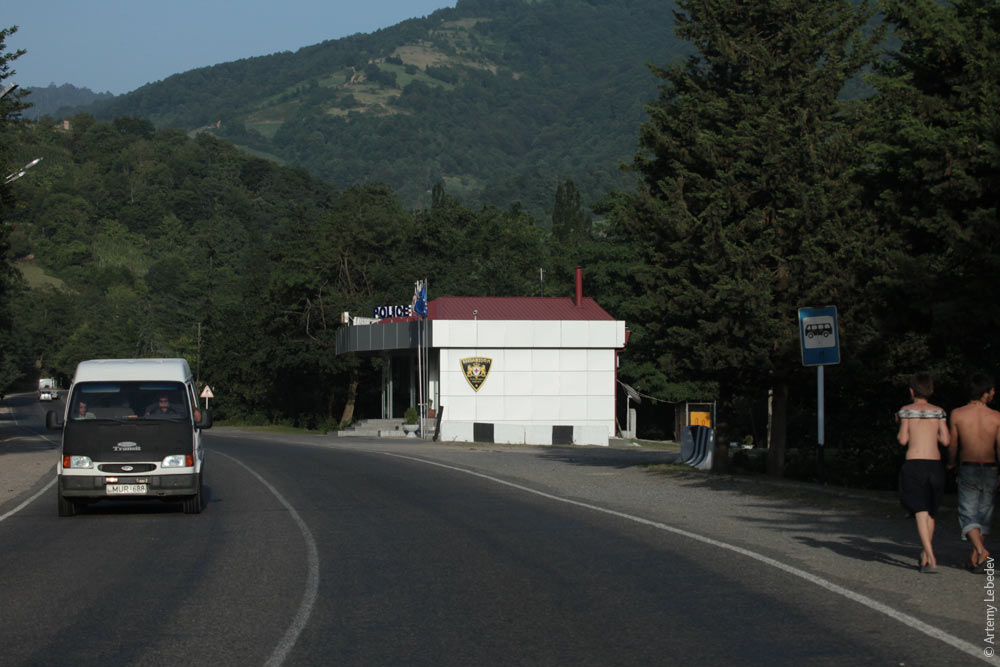 There are signs pointing out the local tourist attractions as you enter every town. A church and a fountain: 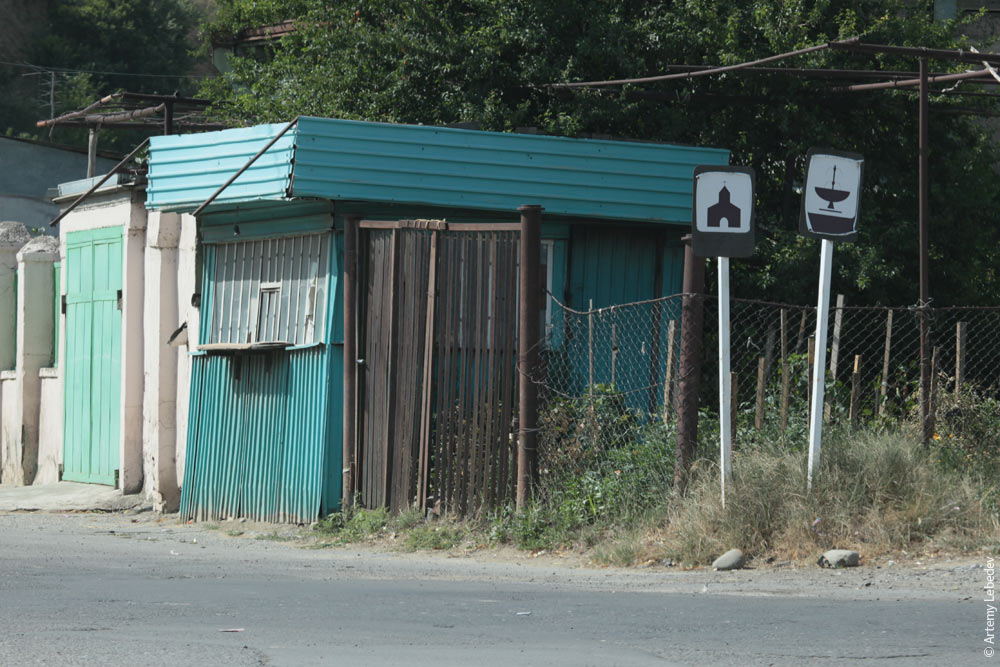 Every village has a Christian cross welded together out of metal pipes. The crossbars are welded to it at an angle, making the whole thing look like a chicken foot. It symbolizes the cross that Saint Nina once made from a grape vine which she tied together with her hair. This doesn’t exist anywhere else. 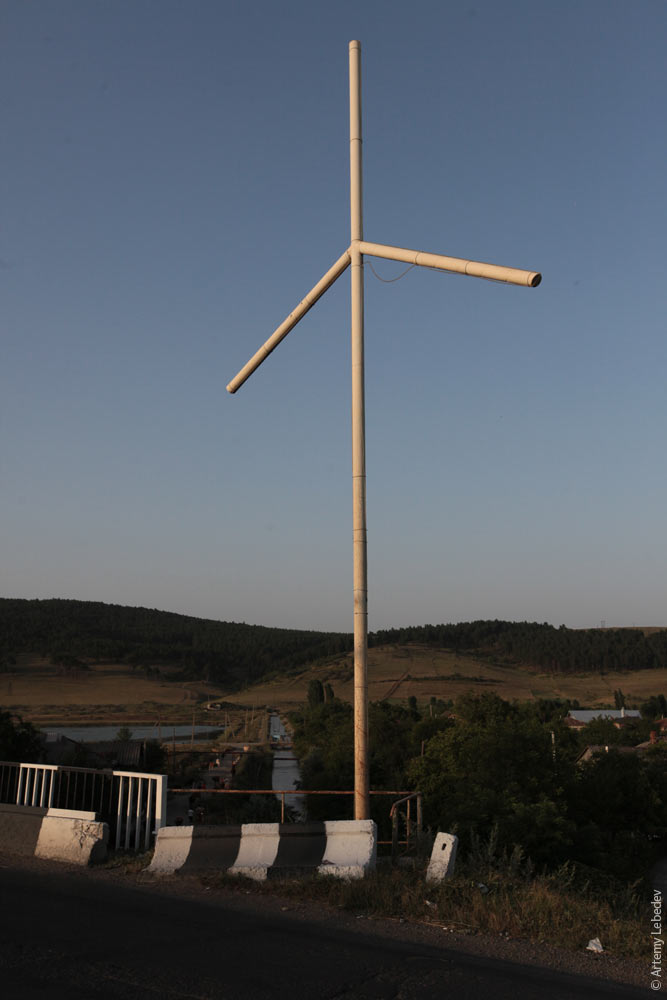 The means of everyone living outside the capital are more than modest. The basis of existence is selling something from a street stall. The owners of the stalls usually build them right into their own fences along the road. This makes it convenient to set out their wares, and they don’t have to travel very far. I’m not even sure if Georgia has markets—it seems like everyone just trades where they live. 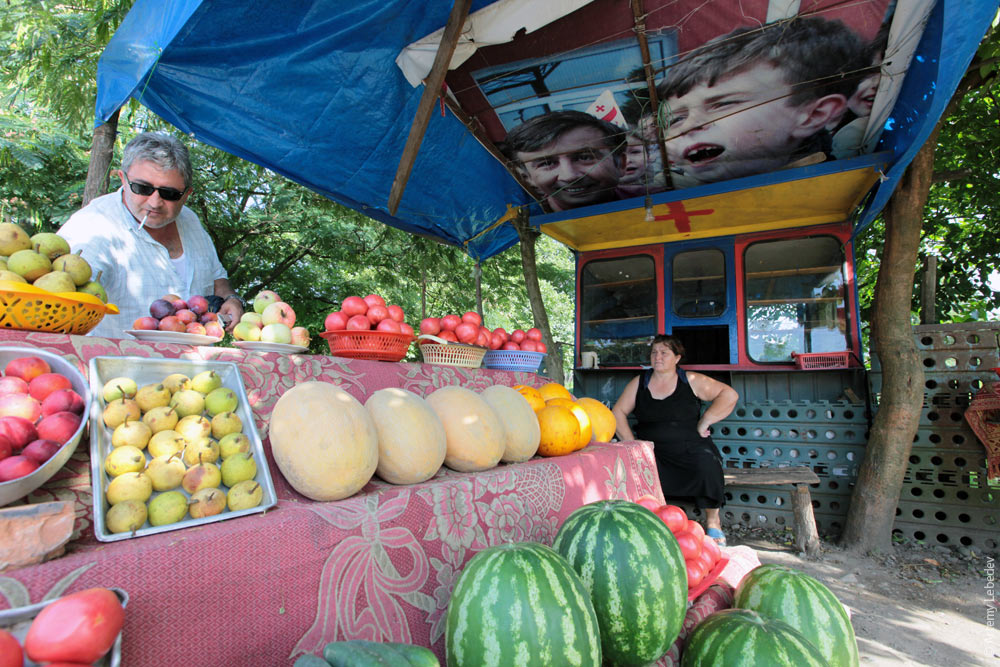 From time to time, you come across specialized villages. In one, everyone sells wooden spoons. In another, everyone sells sweet buns that are all the same shape and made according to the same recipe. 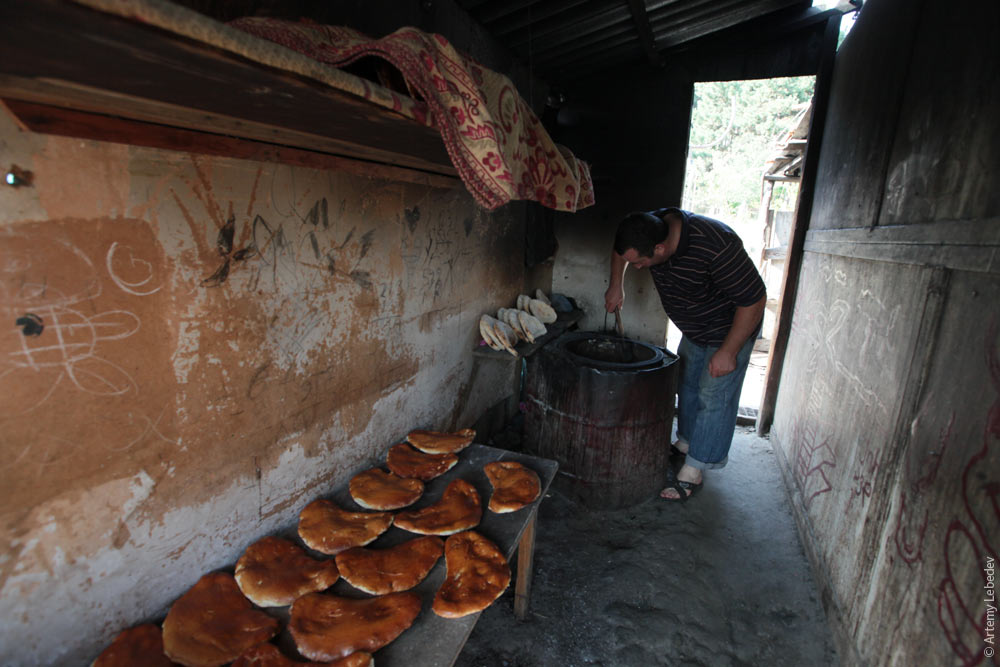 GoriMapI always wanted to know what the traffic lights are like in Gori. 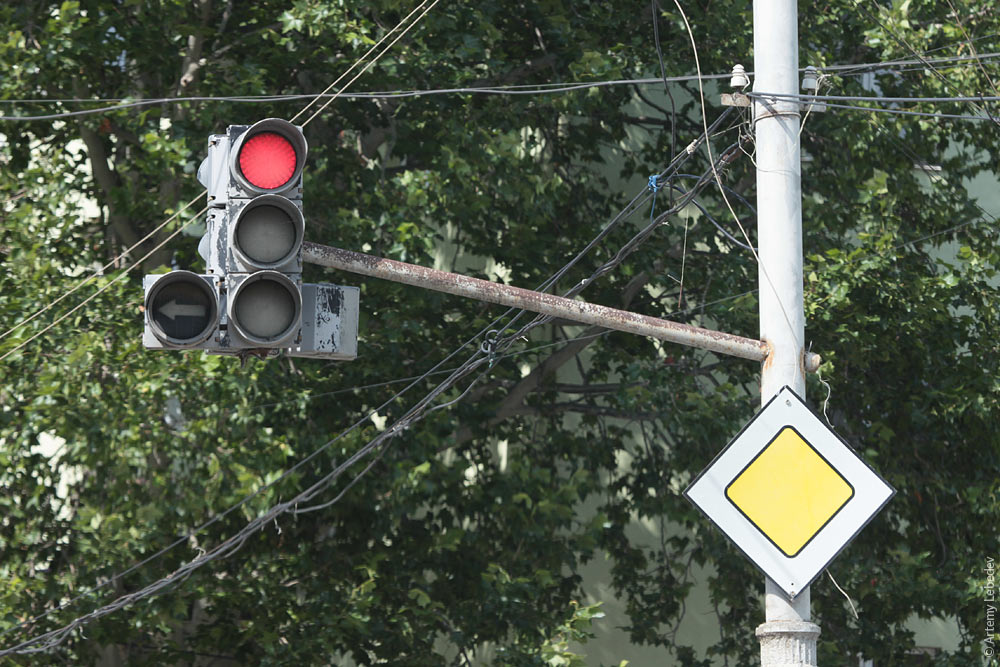 I always wanted to see the payphones of Gori.  Stalin was born here, so the central avenue is named after him. His monument was demolished shortly before our visit, though. 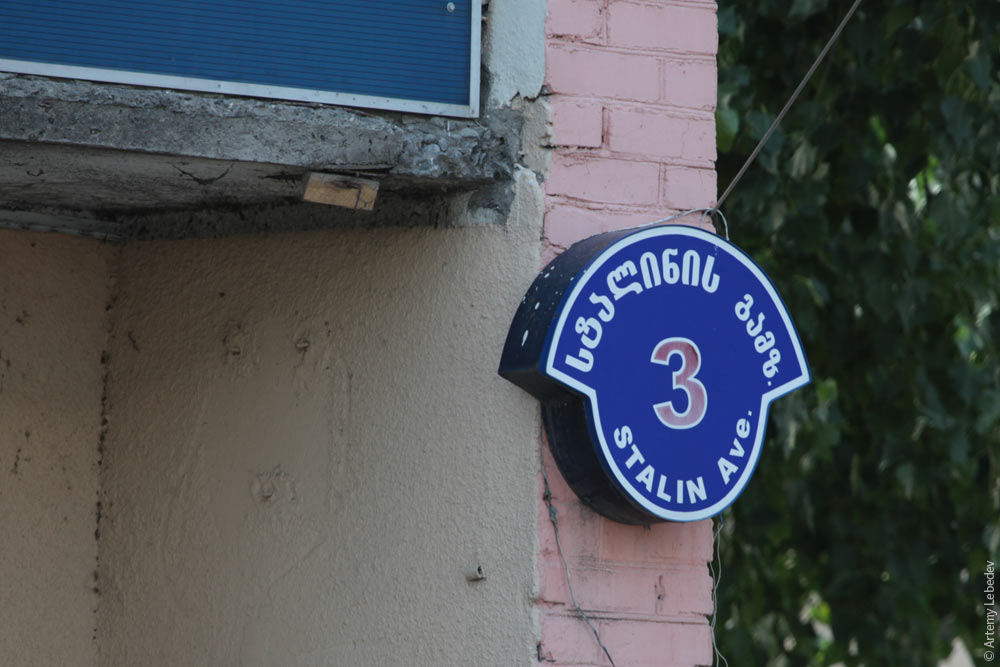 KutaisiMap
A fairly desolate city. 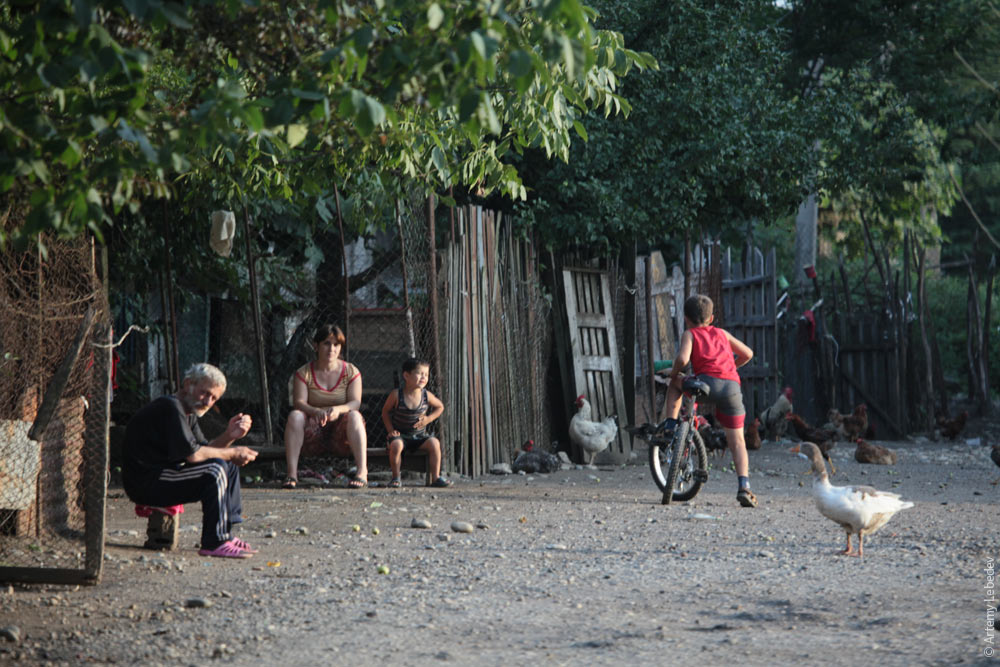 Although there’s an honest-to-god McDonald’s with free Wi-Fi here. 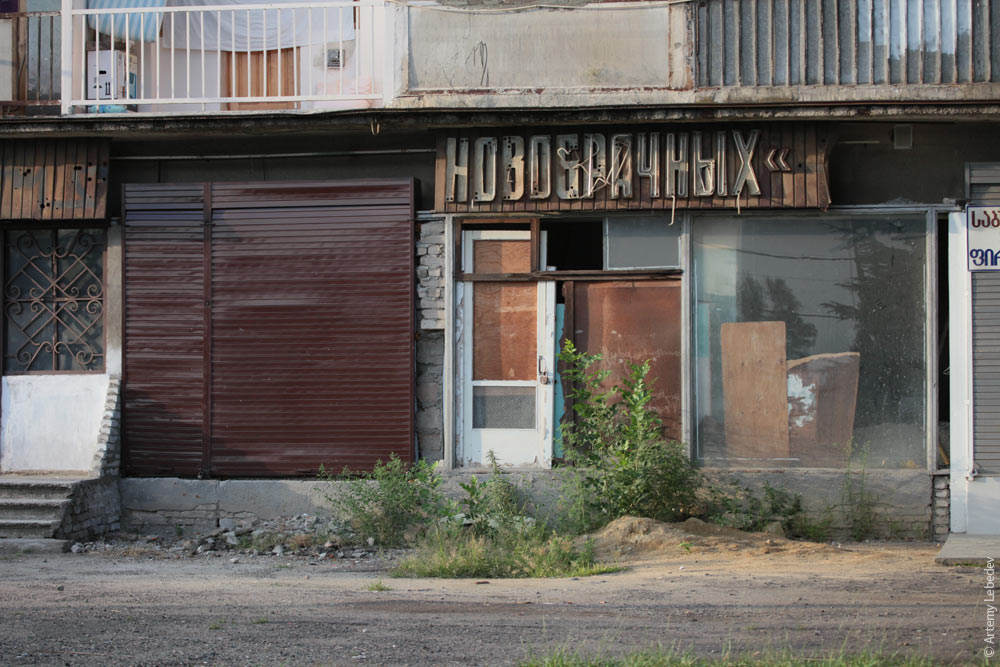 Newlyweds Dumpsters of different colors—presumably for recycling. 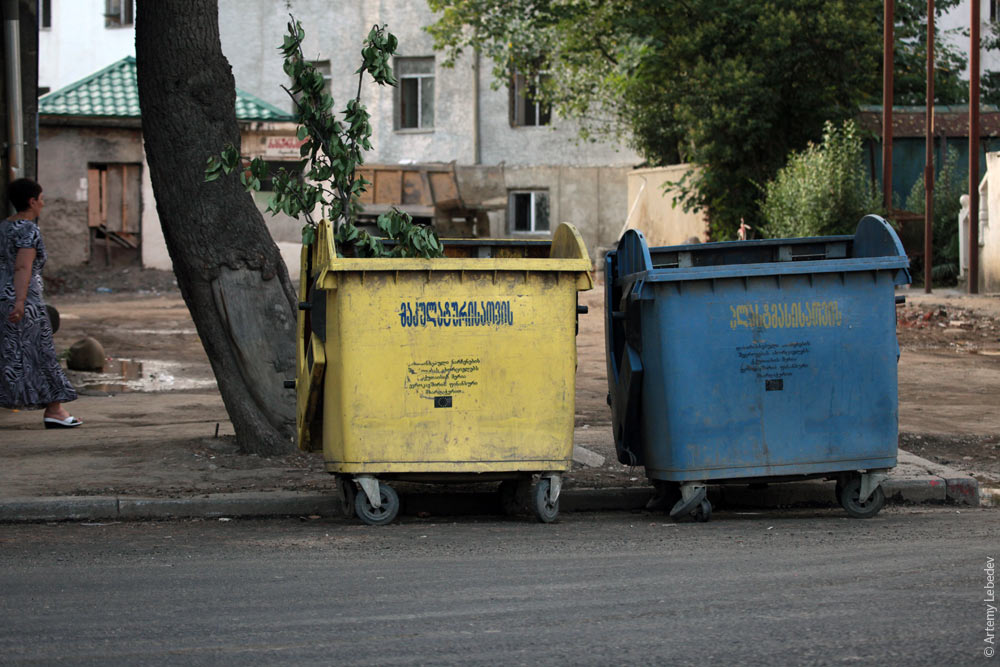 It’s hard to imagine that anyone could be concerned about recycling in a city like this. 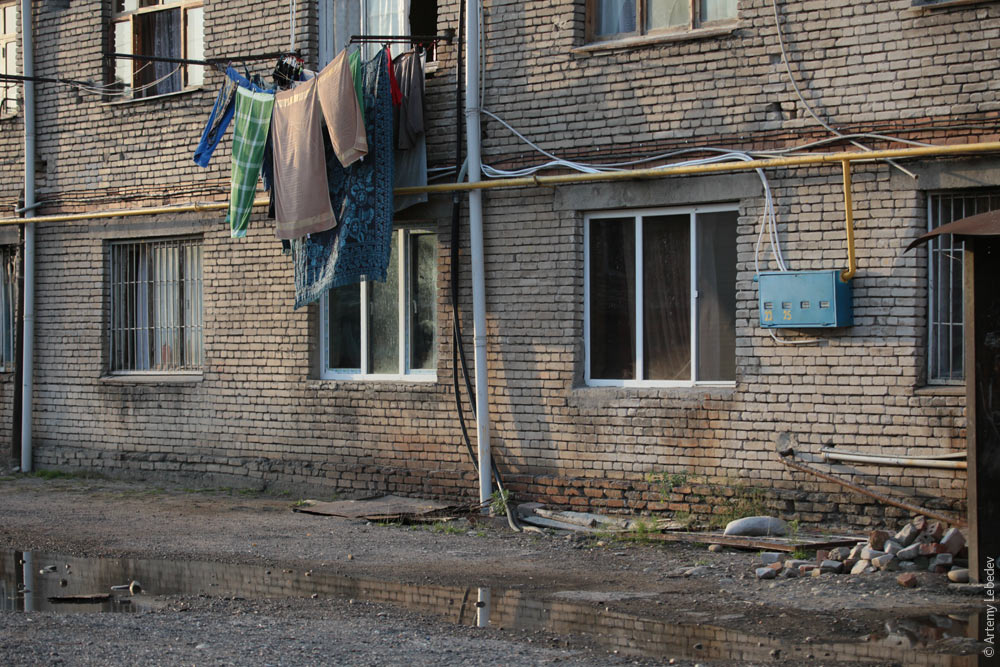 A Kutaisi traffic light. 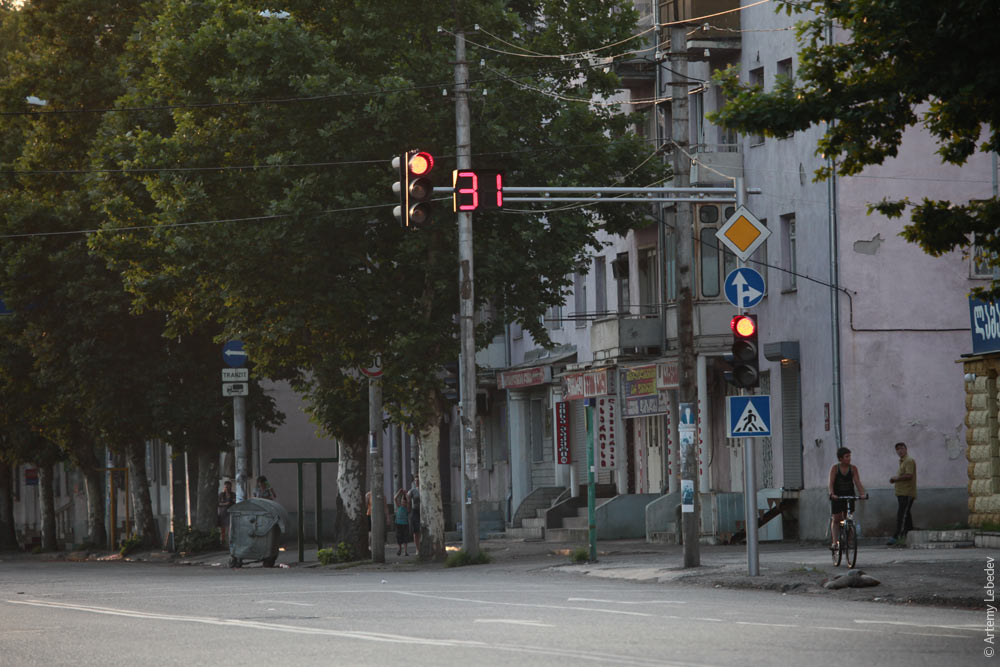 A bunch of cows hanging out at the bus stop. 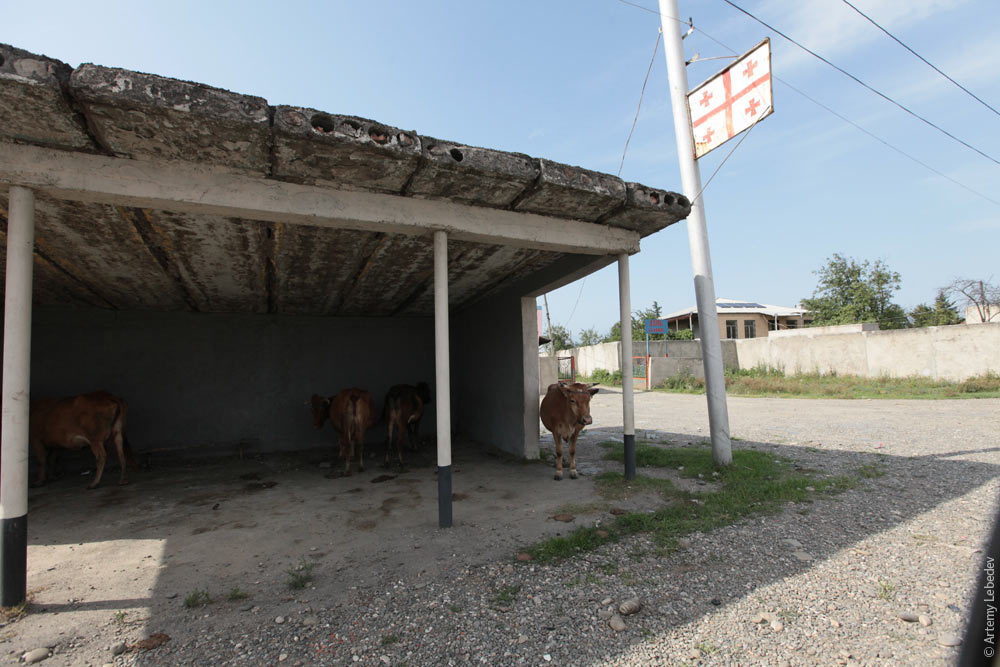 Here, like in Azerbaijan, people build the largest extensions to their apartments they possibly can at the back of the building. 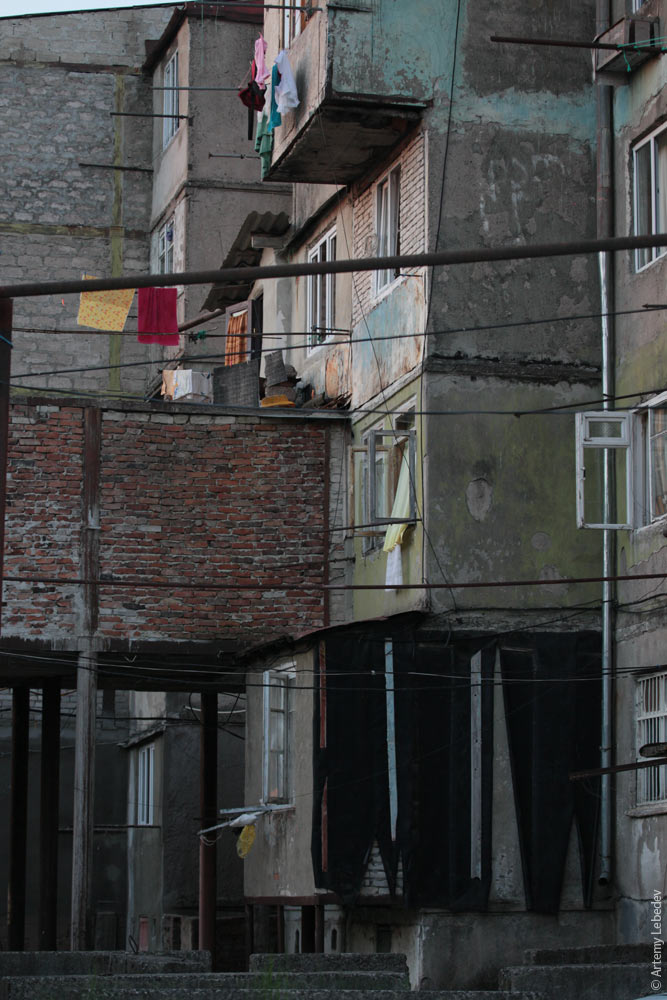 The main feature of interest in Kutaisi: the stairways leading up to first-floor store entrances. Their number and variety deserve a separate album. 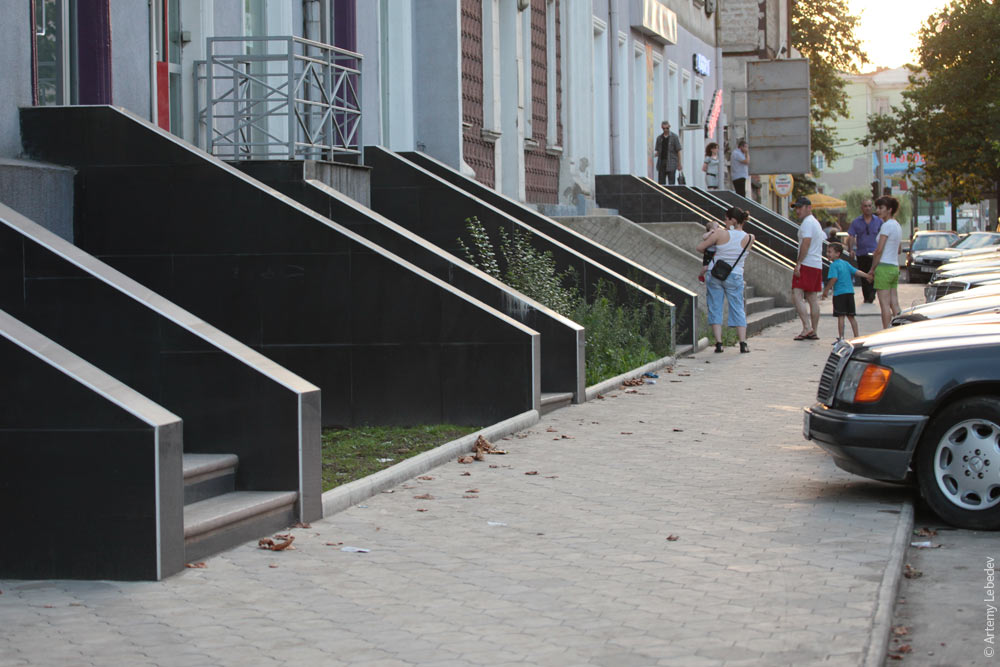 Somewhere between Kutaisi and Batumi, I saw a post office. It was already closed, but there was a post box hanging outside. I was lucky that there were a couple of guys standing by the entrance—they explained that under no circumstances should I drop my postcards into the mailbox, because no one will ever pick them up from there. I have to wait until the post office opens. 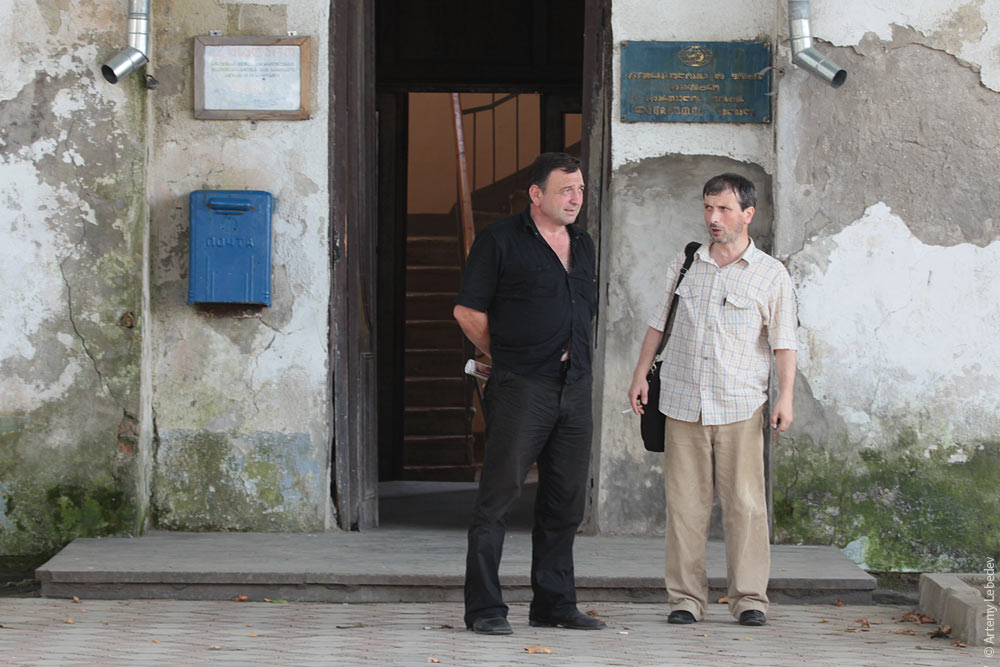 BatumiMap
A typical Batumi dumpster. 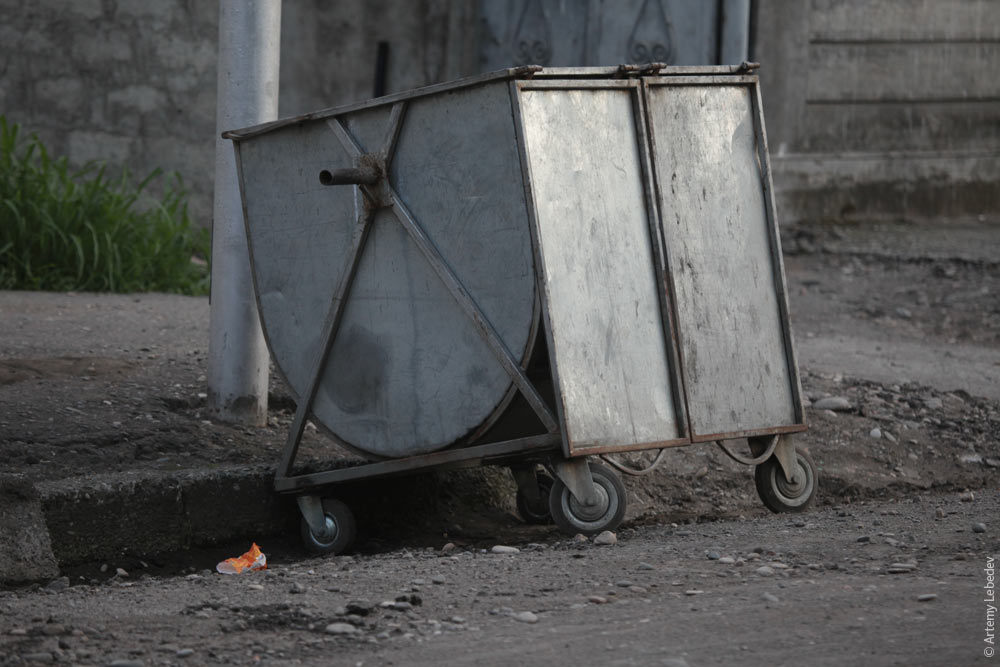 A traffic light (same as in Algiers). 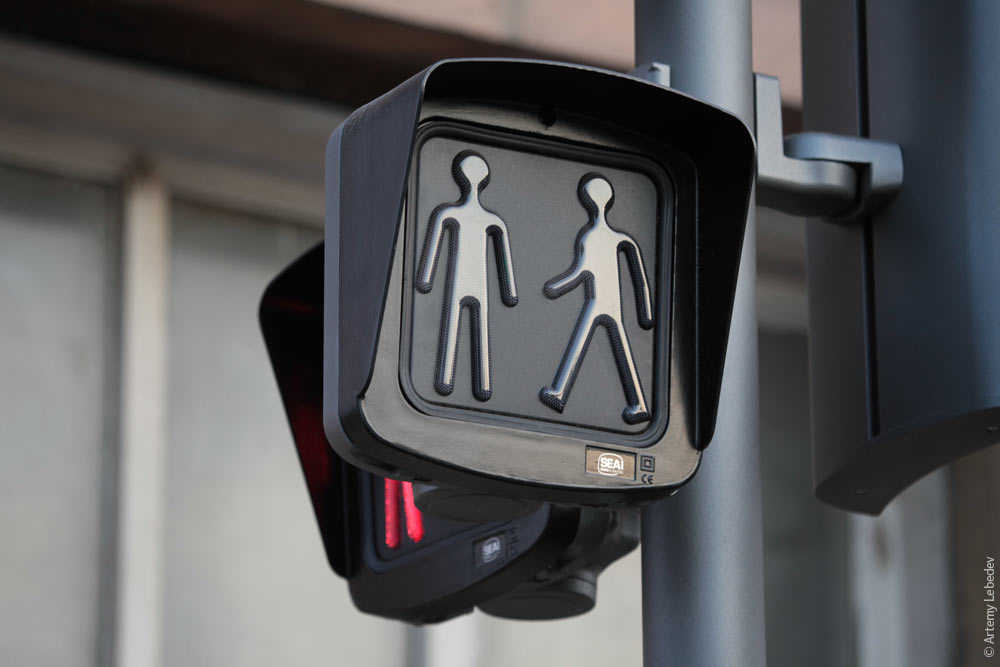 Parts of Batumi look like Europe. 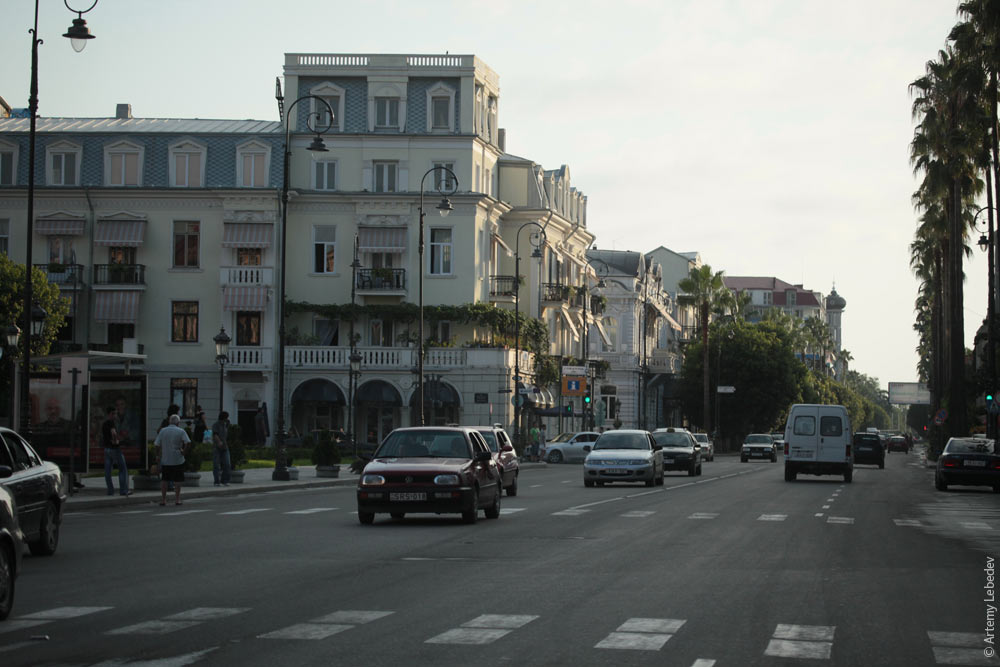 And other parts don’t. 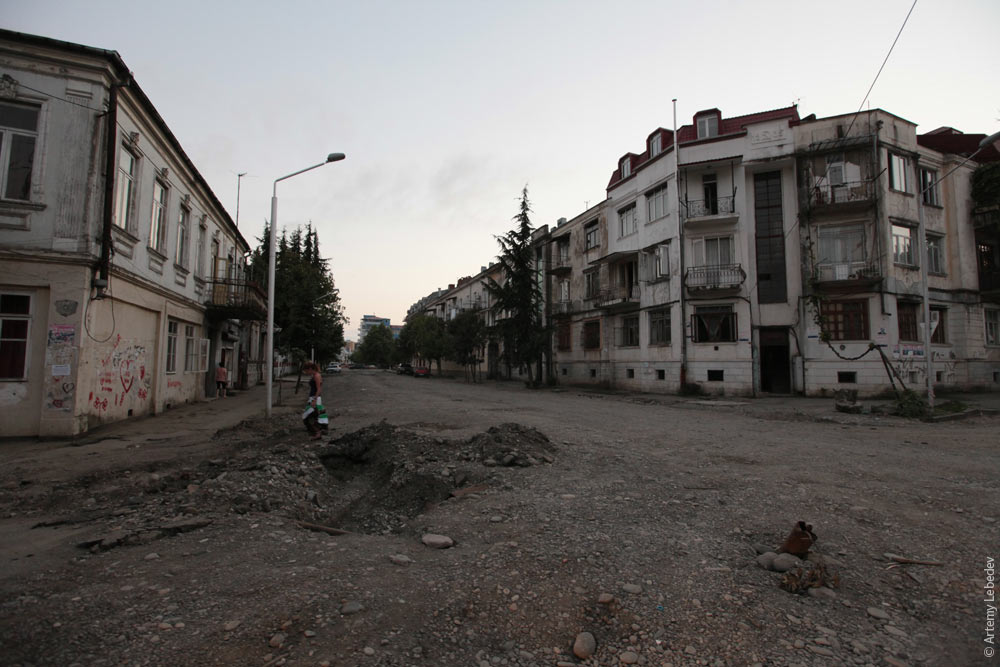 Some parts do. 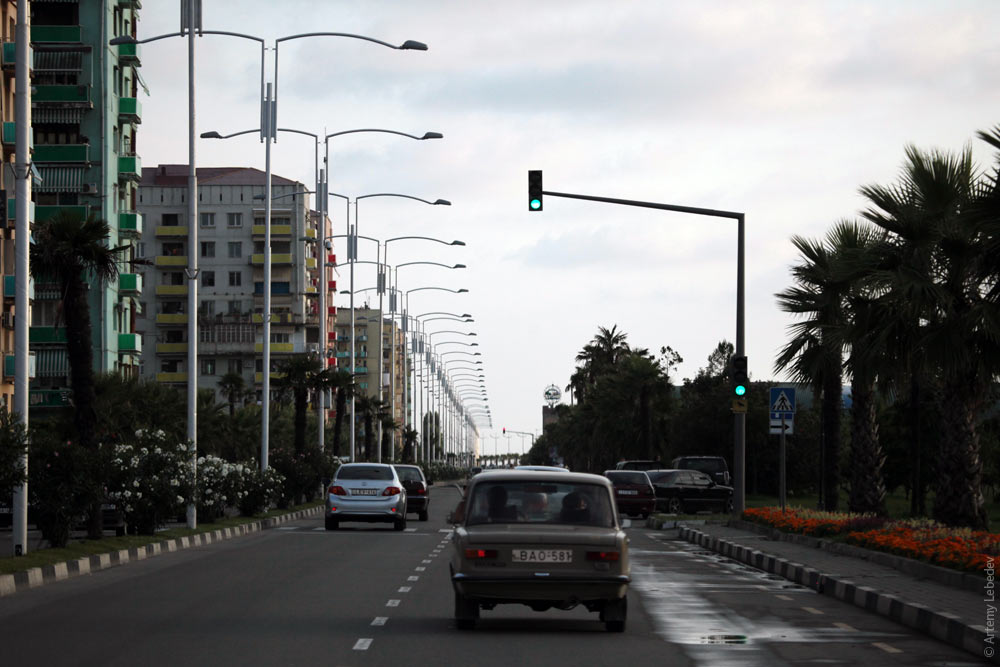 And others don’t. 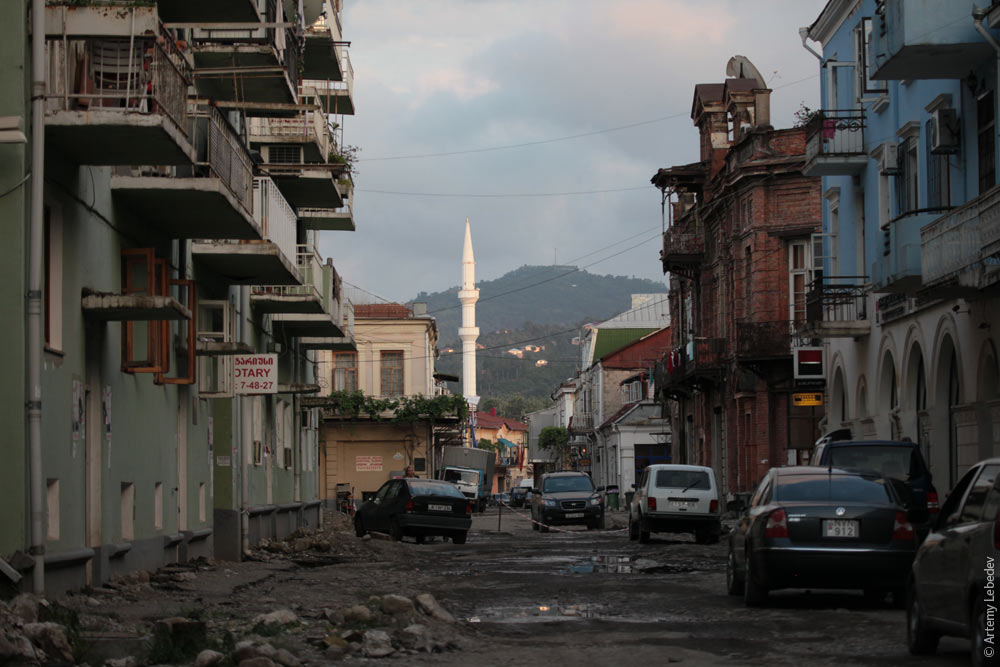 Batumi is the first city I’ve encountered where the yield sign hangs directly above the entrance to a roundabout. 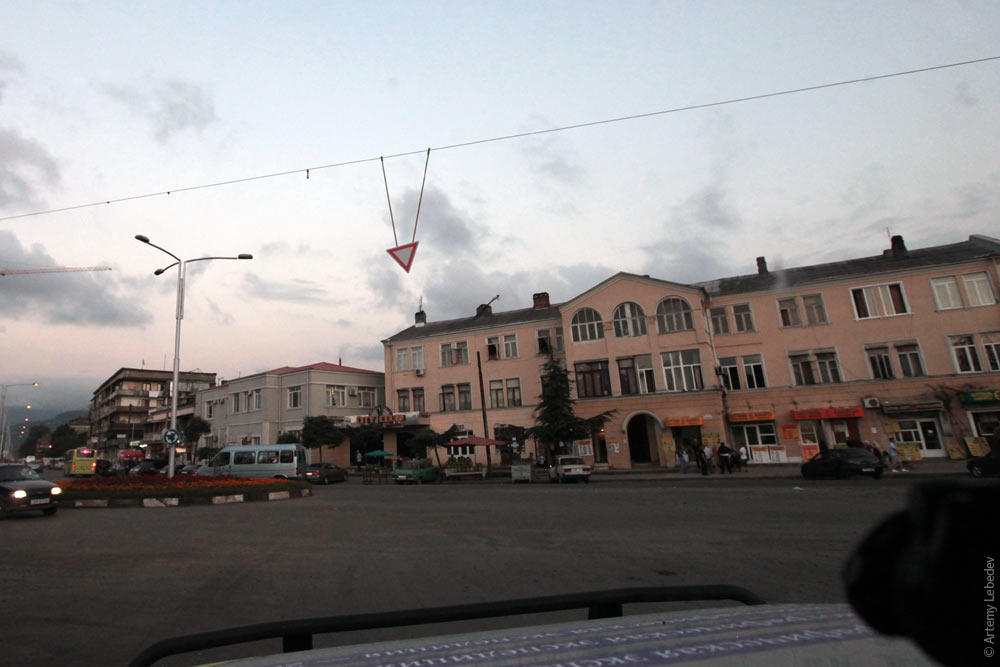 The post office has managed to continue its existence without changing one bit since Soviet times. My postcards were accepted without any issues. They never did reach their destination, though. 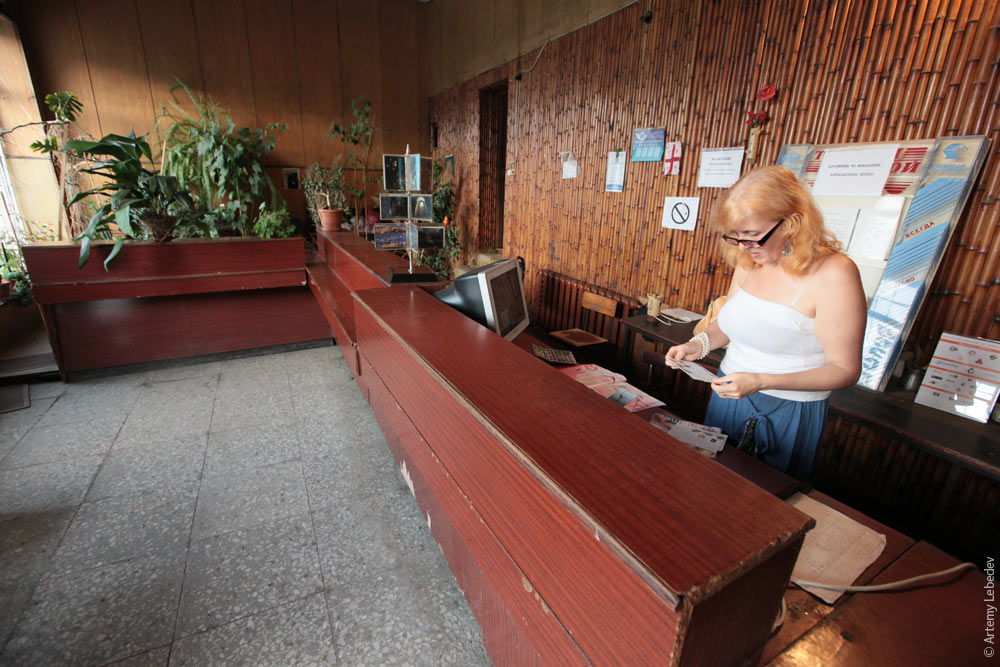 The anti-abortion billboard has two keys under the fetus doll: “Delete” and a question mark. Obviously, pressing the “Delete” button is bad. But what happens if we press the question mark? Huh? What will happen? Well? 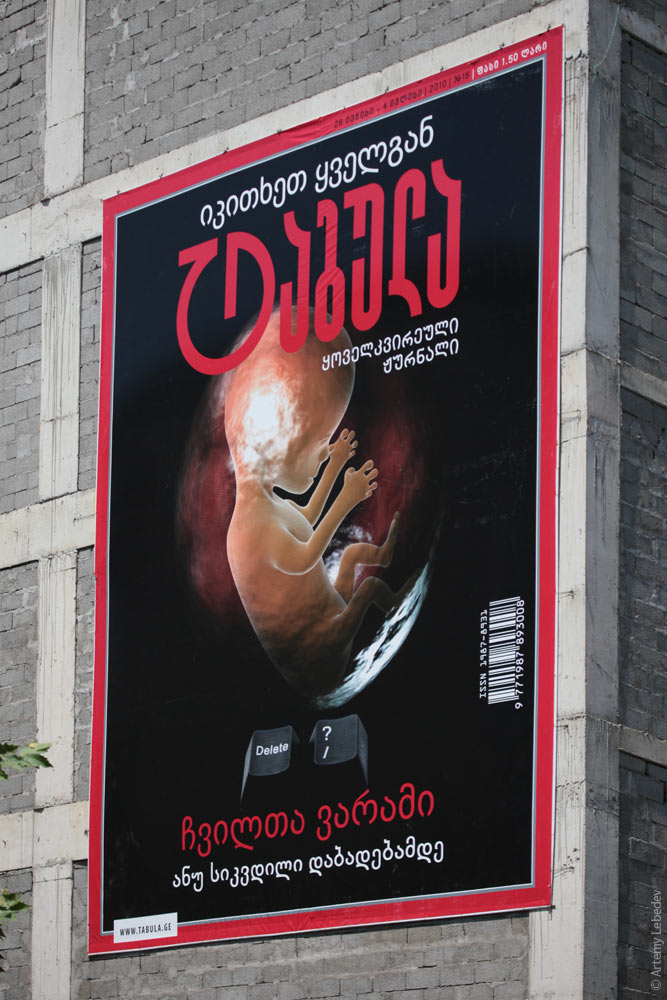 But the most astounding thing about Batumi is the level of permissiveness when it comes to unauthorized construction. Never in my life and nowhere else in the world have I seen such audacity in adding balconies on the twelfth floor. 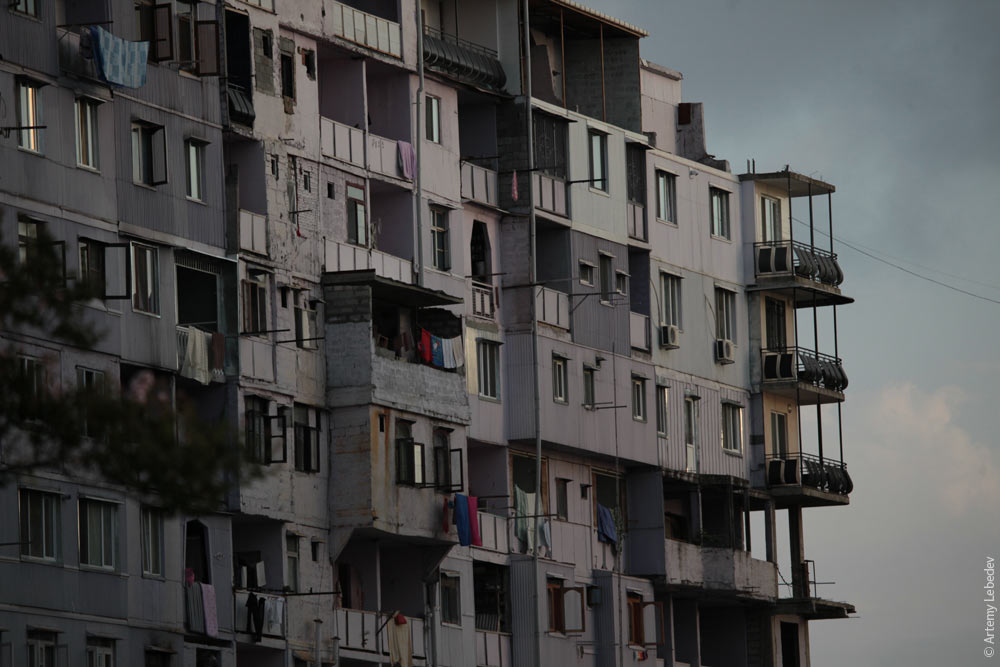 Brave people. 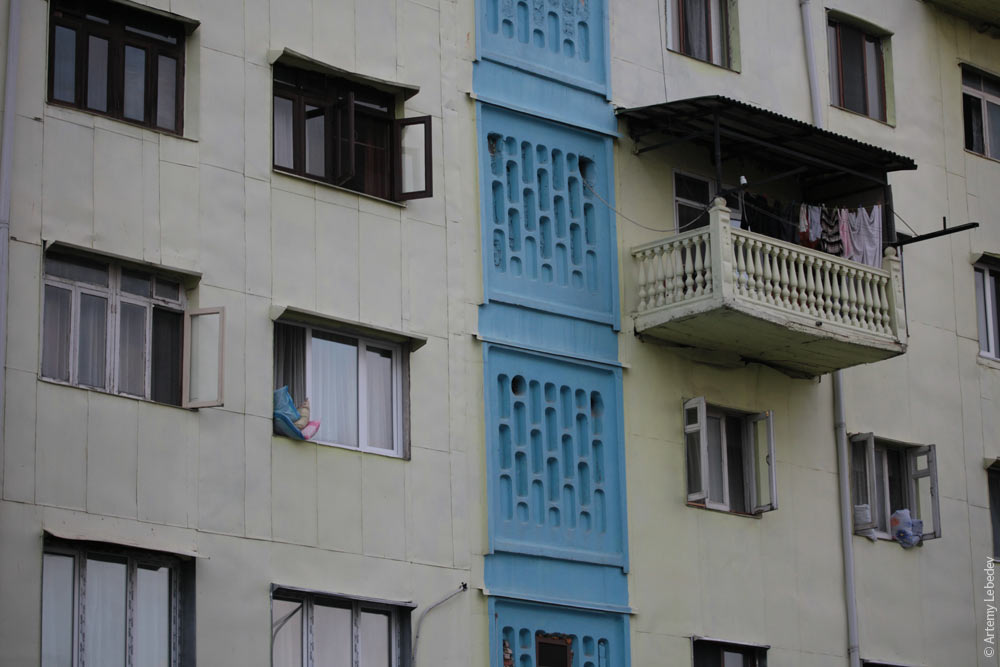 They’re not afraid of anything. 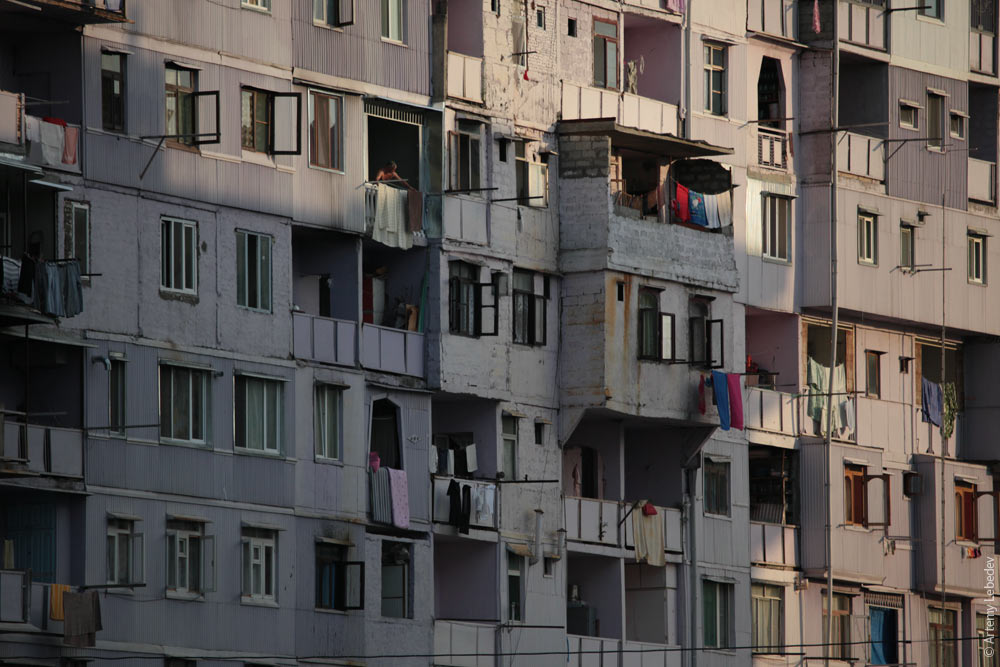 And no one is the boss of them. 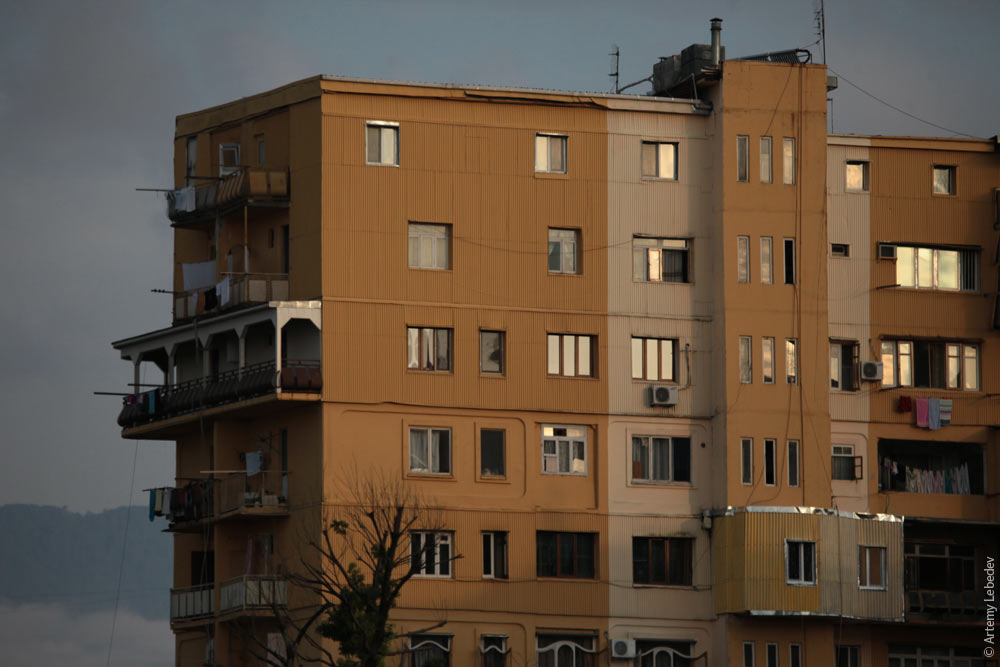 |